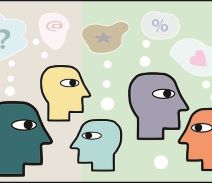Many of us are somewhere on a neurosis spectrum where our emotional and behavioral self-regulation is rendered unstable by inner conflict, misleading defenses, and lingering attachments to unresolved negative emotions. Deep in our unconscious mind is a hidden dysfunction … [Read more...] about The Vital Knowledge We Disown
Climate Anxiety and the Psyche
It’s appropriate, of course, to take seriously the dangers climate change poses and to feel some grief about the crisis. But when this grief or sorrow turns into anxiety, it is likely to be the result of emotional weakness that doesn’t necessarily have anything to do with climate … [Read more...] about Climate Anxiety and the Psyche
Abandonment, Self-Abandonment, and Democracy
If we were just a bit less selfish, we would be more inspired to work on our self-development for the sake of others. Self-development benefits us personally, of course, yet it also serves democracy, unity, and progress. Put another way, we can ask, “How do my unresolved … [Read more...] about Abandonment, Self-Abandonment, and Democracy
Our Readiness to Feel Controlled
This post is an excerpt from LoveSmart: Transforming the Emotional Patterns that Sabotage Relationships, by my late wife, Sandra Michaelson. The excerpt is taken from the section of her book that deals with control issues. People can be highly sensitive to feeling controlled even … [Read more...] about Our Readiness to Feel Controlled
The Key to Emotional Self-Regulation
How much choice do we have at any given moment to feel good or okay instead of miserable? Quite a lot, it turns out, when we understand the nature of inner conflict. Most of us believe we’re basically good and decent. Yet often we can’t feel such attributes as a reassuring … [Read more...] about The Key to Emotional Self-Regulation




